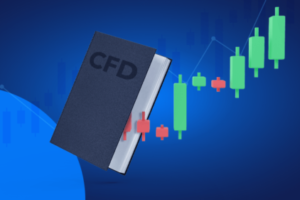Commercial Real Estate(CRE) can be a confusing business. With all the red tape, loan confusion, tax concerns, and changing policies commercial real estate businesses have a lot to deal with.
With that in mind, today I want to go over the five types of commercial real estate loans to give the laymen out there who may be just starting in CRE a solid overview of the basics. Even seasoned pros might find this article useful to help clarify some information that can sometimes be a little confusing.
So here it is, the five types of commercial real estate loans.
SBA 7(a) Loans
The SBA loan program is guaranteed by the U.S. Small Business Administration(SBA) and was designed to reduce the risk for lenders and increase the availability of capital for commercial real estate businesses. The SBA doesn’t loan money directly, but it does work with lending partners like banks, credit unions, and other private lenders to guarantee a portion of loans.
For the SBA’s most popular 7(a) loan as much as 85% of the loan is guaranteed, making it easier for lenders to shell out big dollars without as much fear of being hurt by borrower defaults.
SBA 7(a) loans are general purpose CRE loans, meaning they can be used for anything from working capital to land acquisition. They require a 10% down payment and cap out at $5 million with maximum interest rates that range between 6.75% and 9.25%. The loans are also capped at a 25 year period for real estate purchases and just 10 years for other uses.
SBA 7(a) loans are usually used for things like working capital, debt refinancing, or supplies and inventory because they offer more flexibility and longer terms than SBA 504 loans.
Another slightly less popular form of SBA loan is the SBA 504 loan which can be used for long-term equipment and machinery purchases, real estate acquisitions, and ‘lot improvements’(landscaping, parking lots, etc.).
These loans generally have lower interest rates at a maximum of between 4-5%, but they also have shorter loan periods with a 20-year cap for real estate purchases and a 10-year cap for machinery and equipment purchases. SBA 504 loans also require a 10% downpayment, but they have more fees and are financed differently than their 7(a) brothers.
SBA 504 loans are often used for big, long term real estate purchases because they have much lower interest rates, and higher maximum loan amounts, and part of the loan is funded with a fixed interest rate, protecting borrowers from rising rate environments.
Commercial bridge loans, also known as bridge financing, gap financing, swing financing or hard money loans, are short term financing options for commercial real estate companies that are meant to bridge the financial gap between one loan and the next.
Bridge loans usually last only 6-12 months, require collateral and are usually higher interest rates(usually between 9-15%) options. They also have origination fees(usually 2-6%), escrow fees, title fees, and appraisal fees, and may even include prepayment penalties.
Despite the expense, commercial real estate(CRE) companies may consider using a bridge loan when they are moving offices, renovating outdated buildings, or even if their credit score is too low to get approval for a regular CRE loan.
Conduit and Collateralized Mortgage-Backed Securities(CMBS) loans work a little differently than the rest of the loans on this list. Instead of the usual simple relationship between lender and borrower, conduit and CMBS loans are packaged together with a group of other similar loans and sold off to investors.
Then borrowers pay the same interest rates they normally would on a 20 or 30-year loan period for just ten years, before paying off the final amount in a lump sum payment. Conduit and CMBS loans are great for companies that need better loan terms upfront but are confident they will be able to pay a lump sum down the road.
Investment property loans are hard money loans that are meant to help finance rehabilitation projects where properties are fixed up and then either resold (think Flip or Flop from HGTV) or rented out.
Investment property loans are dished out by hard money lenders like RCN Capital, LendingHome, Patch of Land, and Lima One Capital. Unlike bank loans, hard money loans are based on the quality of the deal instead of on the borrowers’ creditworthiness. This leads to shorter funding time, fewer financial requirements, and fewer fees, but it also means higher interest rates that usually average around 9-10% and a short loan period of just 6-12 months.
Hopefully, this quick overview of the five types of commercial loans helps you feel more confident about your options as a CRE investor or business owner. Or if you’re just learning about CRE I hope this article serves as a gentle entry into this at times very complex business.



